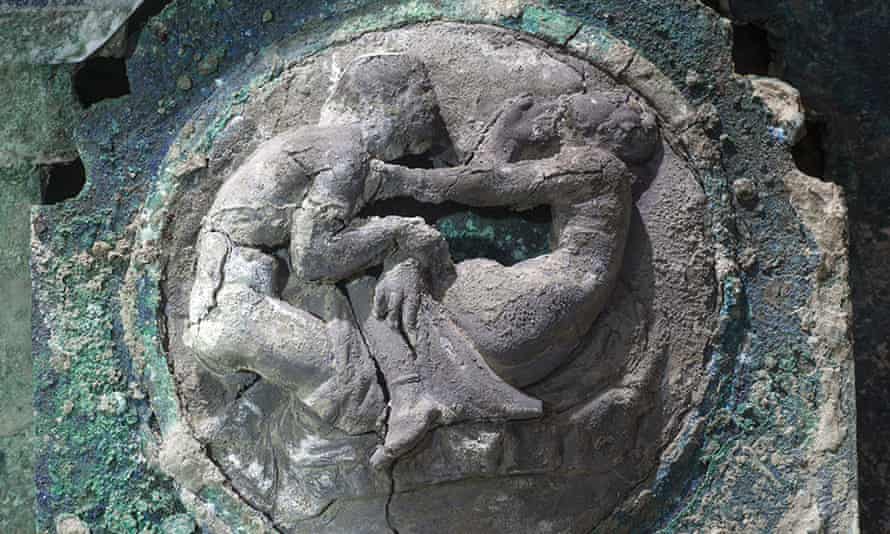
A detail of the decoration of a chariot, with its iron elements, bronze decorations and mineralised wooden remains, that was found in Civita Giuliana, north of Pompeii. Photograph: AP
Archaeologists have unearthed a unique Roman ceremonial carriage from a villa just outside Pompeii, the city buried in a volcanic eruption in 79 AD.
The almost perfectly preserved four-wheeled carriage, made of iron, bronze and tin, was found near the stables of an ancient villa at Civita Giuliana, about 700 metres north of the walls of ancient Pompeii and close to where the remains of three horses were unearthed in 2018, including one still in its harness.
Massimo Osanna, the outgoing director of the Pompeii archaeological site, said the carriage was the first of its kind discovered in the area, which had so far yielded functional vehicles used for transport and work, but not for ceremonies.
“This is an extraordinary discovery that advances our understanding of the ancient world,” Osanna said, adding that the carriage would have accompanied festive moments for the community, such as parades and processions.
Read the rest of this article...
No comments:
Post a Comment
Note: Only a member of this blog may post a comment.